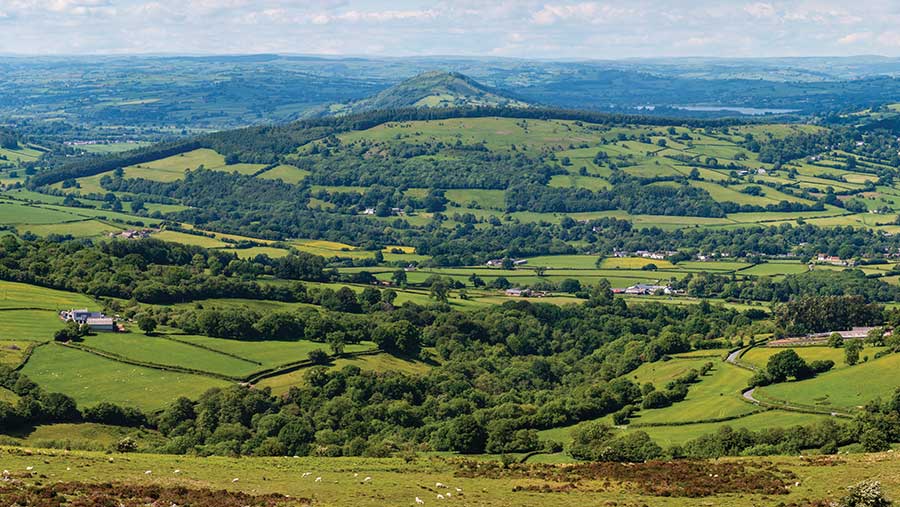Editor’s view: Unresolved funding dilemma at heart of Welsh policy
 © AdobeStock/whitcomberd
© AdobeStock/whitcomberd A barrage of condemnation greeted the Welsh government’s decision this week to ask farmers to apply for its new environmental scheme without any information on what the payment rates will be.
A mischievous civil servant might say this is exactly the sort of risk that farmers are happy with when they decide to plant a crop for the following season or produce another batch of lambs or cattle – although it’s hardly the government’s role to contribute to volatility.
Nevertheless, the Habitat Wales Scheme (HWS) is a curious beast designed to tide farmers over until the permanent replacement for the Basic Payment Scheme (BPS) – the Sustainable Farming Scheme – is ready to be launched in 2025.
See also: Editor’s view: Welcome to the Farmers Party conference
This has all the hallmarks of an unsuitable romance, where both parties know they’re not right for each other but are going through the motions until something better comes along.
It’s not even clear why this relationship was necessary. Could farmers simply not have carried on with Glastir?
If not a match made in heaven, both sides knew each other well enough that there were no nasty surprises, even if it was a little dull.
Just as one in four actual relationships apparently end over financial issues, it seems that money was a major contributing factor here.
The Welsh government has a funding shortage of up to £900m in its overall budget, so perhaps it could not afford for more businesses to get in bed with Glastir.
In light of that, the HWS is unlikely to sweep farmers off their feet with big romantic gestures either.
Given that it’s set to be around for so short a time that naming it will be a tough pub quiz question by the middle of the next decade, much of the focus remains on getting the permanent scheme correct.
At the time of going to press, NFU Cymru president Aled Jones was set to tell the union’s Sustainable Farming Conference on Thursday 28 September that they strongly support the principle of farmers receiving a baseline sustainability payment in return for carrying out a set of universal actions.
But as the government has given no ground so far on the key sticking point of 10% tree cover for entry into this, the union remains
highly sceptical.
A key red line for its complete support for the lowest tier of the Sustainable Farming Scheme is that the “universal actions must work for all farmers – that’s all sectors, locations, land tenures and types”.
Fairness is a laudable aim, but equality and fairness are not necessarily the same thing.
If the government wishes to acquiesce to this demand, the trick will be to find actions it can afford that also help it deliver its various environmental targets – including tree planting.
It has a small and finite amount of money, while the cost of delivering actions continues to rise. So it is easy to see why it may privately wish to exclude some farmers from the scheme – it could pay other businesses that are motivated to join up a meaningful amount of money for delivering these actions.
I wonder if we will end up in a situation where they are able to tailor a scheme that is attractive enough for a good number of lower earning upland farms to enter, even if wealthier and more intensive lowland dairy and arable farmers will not be interested.
If it throws a lifeline to the businesses most vulnerable to failure (particularly as inflation erodes the spending power of the static BPS payment) is that the best outcome that can realistically be hoped for?

